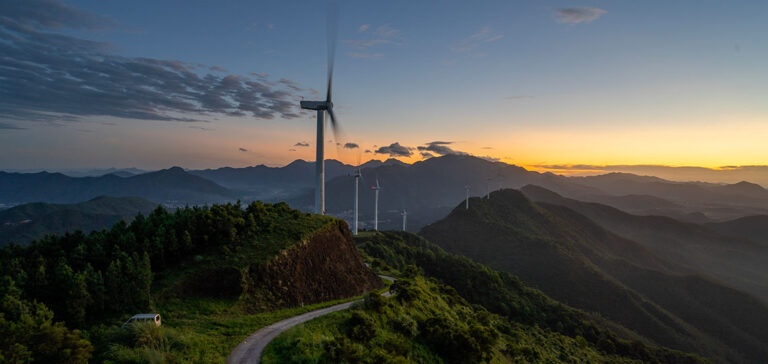With the surge in energy prices, renewable energies have become a golden goose for the French government, which will have access to an unprecedented financial windfall to finance the extension to 2023 of the tariff shield designed to mitigate the surge in gas and electricity prices on users’ bills. The government announced on September 14 the extension of the tariff shield in 2023, with an increase in electricity and gas prices that will be limited to 15%.
Without this new “shield”, rates would have increased by 120%, the government assures.
It is up to the State to pay the difference: the 2023 version of the shield will increase France’s debt by 16 billion euros, 11 billion for gas and 5 billion for electricity paid for by the State to relieve the bill of households, small businesses, condominiums and smaller municipalities.
In “gross”, the bill actually amounts to some 45 billion euros including 11 billion for gas and 34 billion for electricity, but the State intends to deduct a financial windfall of 29 billion recovered from renewable energy companies (RE).
Due to the exceptional context of the crisis in wholesale electricity and gas prices, the RE sector has indeed generated juicy revenues that it will have to pay back to the State, according to a compensation mechanism that the European Commission would like to generalize throughout Europe. A tool that allows “to finance very largely this tariff shield on electricity and on the
gas”, according to Bercy.
“The market prices have gone so far off the rails that today renewable energies are giving money back to the state,” Nicolas Goldberg, an energy expert at Columbus Consulting, summarized to AFP.
In detail, on 45 billion, Bercy will deduct 9 billion under the CSPE, the contribution to the public service of electricity, which will not be paid by the State to these companies of electric renewable energy to compensate for their remuneration, an expense therefore avoided.
The State also expects to return “19 billion euros of profits made by energy companies on solar and wind power,” said Bruno Le Maire, before the National Assembly’s Committee on Economic Affairs on September 14.
In addition, there is a billion euros in additional revenue from hydroelectricity from the Compagnie Nationale du Rhône (CNR).
The return of this windfall to the state purse is explained by an unprecedented reversal of the state’s support mechanism for operators, which takes on the risk of investments in RE but whose principle is based on a give and take. Thus, when the market price is lower than the state-guaranteed buy-back price, compensation is paid to companies. On the other hand, it is up to the operators to return revenues to the State when the market price exceeds. The price provided for in the contract with the State, which is the current case.
Prices on the wholesale electricity markets rose to over 1,000 euros per megawatt hour in August, compared to less than 50 euros before the outbreak of the conflict in Ukraine.
“When prices are above this guaranteed price, it seems legitimate to me that the State recovers the stake,” said Bruno Le Maire before the deputies. “What was in previous years a cost to the state budget is for the first time a revenue for public finances,” said the Commission de régulation de l’énergie (CRE), the sector’s regulator, this summer.






















